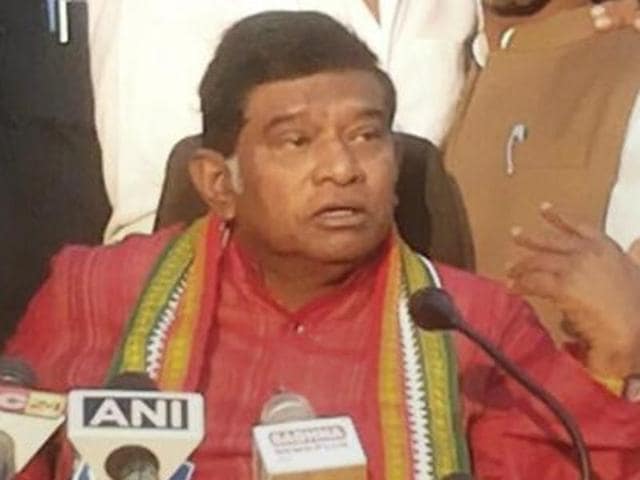Ajit Jogi’s departure from Congress indicates fraying nerves in party
It’s not easy to be a Congressman these days, more so if it’s someone like Ajit Jogi.
Former Chhattisgarh CM Ajit Jogi’s decision to quit the Congress may be driven by his own ambitions but many of his colleagues also see in it a manifestation of the fraying nerves in the grand old party. Buffeted by a series of electoral setbacks, Congressmen are responding in different ways.

While Digvijaya Singh favours a “surgery” and Jogi explores options outside the party, most others seem to be grasping at straws. Their clamour for Congress vice-president Rahul Gandhi’s elevation betrays their frustration over the stasis that seems to have gripped the party. They want an end to the “prevailing uncertainty”. But the malaise afflicting the party runs deeper than the mere uncertainty about the future of individual leaders in a new set up.
“Till 1980’s, 80 per cent (of the electorate) voted for the party and 20 per cent for individual candidates. It’s the other way round now,” said a senior Congress leader. Many party veterans HT spoke to echo similar views. Personality cult still plays a big role in Indian politics but a national leader’s popularity is no longer the decisive factor in elections.
“We need to identify our candidates for Lok Sabha and assemblies right away and ask them to start reaching out to people. Hope this process starts after Rahul takes over,” said an AICC functionary. If he has to be elevated, the Congress Working Committee (CWC) can meet any day and do so. But if he chooses to be ‘elected’ and not ‘nominated’, the party will have to start preparations for organizational elections by the year end. In September last year, the CWC had decided to defer the elections and gave one year’s extension to party president Sonia Gandhi. There is suspense about the timing of his elevation, but few know the Congress vice-president’s mind on it.
“We have to start a fresh innings. We should learn from the BJP and be a risk-taker,” said a Congress MP. In 2002, the BJP decided to send then union minister Vasundhara Raje to head the Rajasthan unit of the party, ignoring strong reservations of towering leader Bhairon Singh Shekhawat. She has led the BJP to power twice so far. In 2001, the party chose Narendra Modi as the chief minister of Gujarat. The rest is history. The BJP continues to “take risks” and groom “untested” leaders such as Sarbananad Sonowal in Assam and Devendra Fadnavis in Maharashtra. At the five-hour Doordarshan programme to mark the NDA government’s second anniversary, the faces projected from different states comprised Fadnavis, minister Yunus Khan from Rajasthan and Nitin Patel, also a minister, from Gujarat.
“We have to invest in young leaders at different levels in states and work on a long-term strategy. Modi government is floundering big time but we have to be there for the people to look at us as The Alternative,” said another Congress leader.





